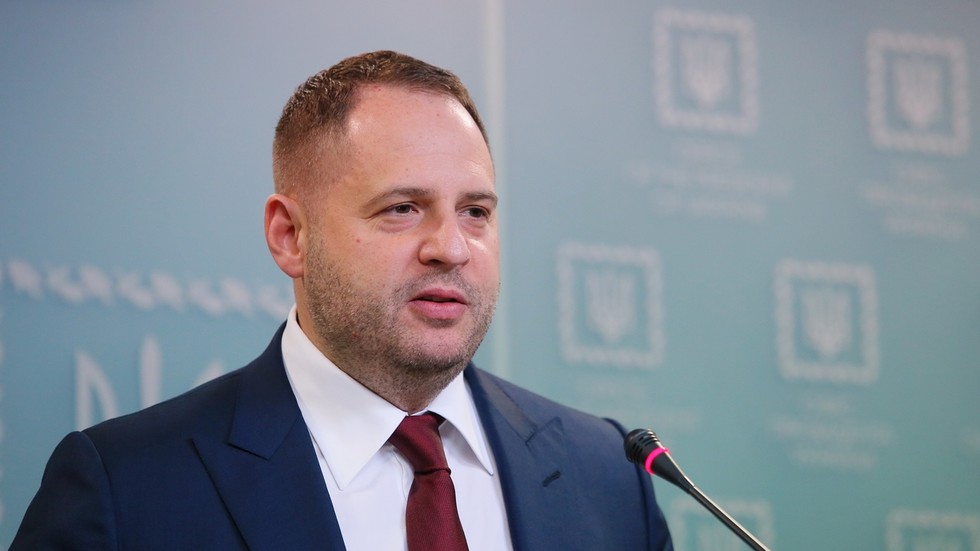Years of political turmoil reached a new low in Great Britain this week with the resignation of Prime Minister Liz Truss after the shortest tenure in British history.
Confidence in Truss had collapsed after she presented a budget proposal featuring the UK’s largest tax cuts in 50 years, mainly benefiting the wealthy and corporations. Financial markets reacted with shock to the plan — which commentators dubbed “regressive” and “badly designed” — sending the pound plunging and steeply increasing the costs of government borrowing.
But Truss’s unprecedented failure is only the latest in a series of crises that have plagued Britain in recent years. Truss succeeded fellow Conservative Party member Boris Johnson, who was fined after revelations of secret parties he held in contravention of his own government’s Covid-lockdown rules. Johnson’s populist bluster was routinely peppered with false statements, and he eventually resigned after being caught in a lie about a top official’s sexual misconduct.
Johnson’s predecessor, Theresa May, stepped down in 2019 after she couldn’t make good on her basic slogan to deliver Brexit, Britain’s breakup with the EU that UK voters had called for in a 2016 referendum. The decision to exit the 27-member bloc also caused the downfall of May’s predecessor, David Cameron, who had campaigned for the UK to remain in the EU ahead of the 2016 vote. Cameron quit shortly after the vote, in which 52 percent voted Leave.
What’s behind these years of political chaos? I asked Matthias Matthijs, a senior fellow for Europe at the Council on Foreign Relations and an associate professor of international political economy at Johns Hopkins University’s School of Advanced International Studies. He’s also the author of Ideas and Economic Crises in Britain from Attlee to Blair (1945-2005).
There is one clear root cause of Britain’s woes, according to Matthijs: Brexit. The vote to Leave or Remain in the EU, he says, scrambled UK partisan affiliations and created new, polarized political identities around one dominant issue. The decision to leave unleashed serious economic aftershocks, which were impossible to ignore or paper over indefinitely. The result has been a chaotic, unsteady Britain, battling social malaise and political upheaval in the aftermath of the pandemic and amid an inflation crisis sweeping the global economy.
I spoke with Matthijs on October 21 following the announcement of Truss’s resignation. (She will stay on until a successor is voted on, reportedly in the coming week.) A transcript of our conversation follows, edited for length and clarity.
Michael Bluhm
From the outside, the UK looks unstable. Conservatives won a decisive victory in the 2019 general election, but they have also gone through three prime ministers in three and a half years. How did Great Britain get to this point?
Matthias Matthijs
This was the logical consequence of the Brexit vote. The Conservative Party made itself the party of Brexit, but they were never honest about the inevitable trade-offs of leaving the European Union. You gain sovereignty, but you’re going to have significant economic costs. You’re going to create trade barriers with your biggest trading partner, even though you’re going to be able to sign new trade deals with other countries.
In 2016, the question was, “Do you want to leave the European Union?” The answer was yes for 52 percent of voters. But in that referendum, they never asked or answered what was going to replace EU membership. And the UK now has to accept EU rules in dealing with the EU — without any say over the future of the EU.
Ahead of the general election in December 2019, Boris Johnson basically said, We’re going to cleanse the Tory Party of any Remainers. Everybody is now a committed Brexiteer. And they’re all committed to my version of Brexit, which is the hardest version of Brexit — meaning that we’re going to leave the EU completely — the single market, the Customs Union, everything.
He won a big majority in that election, and his government negotiated the trade deal that replaces EU membership. But that’s when Covid hit, so Covid masked the effects of leaving. Because of Covid, trade and travel collapsed, so all the problems with Brexit weren’t visible until the last year.
Then Johnson resigned, which led to the rise of Liz Truss, also from the right of the party. Now the problem is that they’re quickly running out of political talent. They never committed to being honest about the trade-offs they were making. Liz Truss started to implement this fantasyland economic strategy, and that’s when the market started to panic.
Now the UK has entered what in the 1990s was called emerging-market territory, where markets are starting to dictate fiscal policies. The Tories made it very hard for themselves by choosing this path, and the chickens are coming home to roost.
Michael Bluhm
You mentioned the costs and trade-offs of Brexit. What were the economic costs of leaving the EU?
Matthias Matthijs
The economic cost was measured at about 4 percent of GDP over 10 years. But it’s hard to show people that they don’t have something that they would have had. It’s a significant economic cost. Former Bank of England Governor Mark Carney pointed out that at the time of the Brexit vote, the UK economy was about 90 percent of the size of Germany’s economy. Now it’s about 70 percent of the size. The pound has weakened, too. There’s also been a lack of productivity and real economic growth.
There are a lot of other hassles. Travel to Europe, for example. Leaving the Customs Union means a lot more bureaucracy. Small businesses that had made the European market their main market now face problems: Instead of two-day delivery times, they have 20-day delivery times. For many customers, that’s too long. They’re losing that market without gaining new markets.
A big cost is that the EU has an alphabet soup of regulatory agencies that regulate and set standards for every industry. But now all UK companies have to recertify themselves with a new UK regulator.
It’s not clear that there have been any real benefits. What do you have now that’s so great that you didn’t have when you were an EU member? Apart from the Imperial British stamp on a pint glass, they have very little to show for it.
Michael Bluhm
How did Brexit affect the constituencies or the partisan identities of the two major parties?
Matthias Matthijs
That’s an excellent question. The genius of Boris Johnson in the 2019 election was that he put together a coalition of voters that included liberal Leavers. This included people who wanted to leave the EU for cosmopolitan reasons, meaning they wanted more immigration from outside the EU. They wanted free trade deals with America and India. They wanted the sovereignty of Parliament to be central.
Others in this camp saw potential financial gain for the financial industry and especially the hedge fund industry, from the lower taxes and deregulation that would be possible through leaving the EU.
But Boris also appealed to a working-class constituency that had traditionally voted for Labour. The Tories promised more protection from the European market and from EU immigration. The strength of Boris Johnson is that he had that populist appeal with working-class voters that would never have worked with a cosmopolitan message — and he labeled Remainers as cosmopolitans.
A lot of working-class voters, especially in the north of England — and in England in general — who voted for Brexit felt that the Labour Party was not representing them. They saw the party as highly educated professionals who didn’t care about the plight of the working class and were ready to disregard their votes to leave the European Union.
The Tories very cleverly put together a coalition not unlike how Donald Trump managed to win Rust Belt states in 2016. Boris Johnson promised that he was going to level up the country: More resources from London were going to be invested in the north of England and in the parts of England that were forgotten — the losers of globalization. That was going to be easier now because the EU had been very strict on industrial policy and similar things.
Boris Johnson kept this Leave coalition together for a while. But Covid interrupted that, and his own lack of restraint finally led to his fall. But the difference between him and Liz Truss is that Truss doubled down on a low-tax, low-spending, deregulatory version of Brexit — what some call Singapore-on-Thames — which is a kind of Brexit that very few people voted for.
That made a lot of these voters who had voted Tory for the first time in their lives realize that Boris’s promises were never going to happen. The last few weeks were a bit of a moment of truth. That’s what we see reflected in the opinion polls where Labour is now riding incredibly high.
Michael Bluhm
You say that Boris Johnson created this new coalition of Leave voters and the identity of being a Leaver was central to that. That sounds like he was cultivating political polarization around Brexit. How polarized is the British electorate now?
Matthias Matthijs
The polarization around Leave versus Remain hit a high point in 2019. Then the election happened, and then Covid happened. Today, Labour is not promising a return to the EU. Labour is talking about how to make Brexit work.
The Leave-versus-Remain identity has weakened. Brexit has happened. It’s not something that you can ignite politically anymore. Now we’re back to old-fashioned questions of left versus right. How much should the government tax people to have better public services? Who should pay how much in taxes? What should government spend money on?
We’re back to a more normal politics. Liz Truss’s fiscal choices were so radical that any new Tory leader will have to shift back to the center, because otherwise they face electoral oblivion.
Michael Bluhm
Where are voters’ sentiments now?
Matthias Matthijs
Reality has hit for many Labour constituencies. Nothing changed. They voted Leave to show their discontent with the elite consensus on globalization and an economic future centered on cities and services. Then they voted for Boris Johnson, saying, Well, it feels like Labour hasn’t done anything for us, but maybe this guy will. Now, three years later, they feel like they haven’t seen any effort by the Conservatives to do anything for them, either.
They’ve reverted to the status quo ante. Identities are much more fluid, though, and it’s totally possible that a new Labour government would disappoint them, and then they switch back to the Tories.
Michael Bluhm
How do you see the potential ways out of this political instability?
Matthias Matthijs
The only way out is a new general election. The Conservative Party will resist it because they face electoral annihilation if they have an election soon, but the party is divided.
There is a more pragmatist, centrist line, represented by Jeremy Hunt, the new chancellor of the exchequer. They don’t want to cut taxes in the middle of high inflation. They believe that Britain does need more immigration — there’s a lack of labor supply because a lot of people left the UK because of Brexit.
The other wing is doubling down on cracking down on immigration. I don’t see how a new Conservative government can last beyond next spring or summer because the party is divided on fundamental questions of government.
Michael Bluhm is a senior editor at the Signal. He was previously the managing editor at the Open Markets Institute and a writer and editor for the Daily Star in Beirut.














